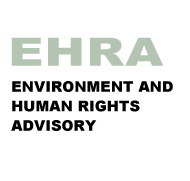Why human rights?
Because human rights are recognized as basic moral minimums for governments; and because, as we have mentioned above and will see more fully below, the primary function of any government is to secure the rights of its citizens; and because the climate crisis threatens to undermine the enjoyment of human rights; human rights serve as the clear moral standard against which government policies and practices must be measured.
The important thing about human rights norms, therefore, is that they set standards for what duty-bearing governments must and must not do. These standards, which apply universally to governments across the nation and around the world, draw a clear line between behaviors that are considered morally acceptable and those condemned as morally reprehensible.
Human rights standards are also universal, not parochial. They are not limited to certain people, groups, religions, nations, or situations. Rather, human rights are universal in at least these following three senses.
First, they are universal in the sense that they arose out of a broad human consensus across the world. As human rights scholar Johannes Morsink reminded us above, the 1948 adoption of the Universal Declaration of Human Rights was the first time in human history that representatives of virtually every nation on earth came together and formally adopted a statement of moral values.
Second, human rights are promulgated universally. The UDHR is, for example, the most widely translated document in the world. To date, it has been translated into over five hundred languages, including at least two sign languages.[i]
Third, human rights standards formally apply to all persons everywhere, including children, because of the simple fact that they are human persons. According to the United Nations High Commission for Human Rights: “Human rights are rights inherent to all human beings, whatever our nationality, place of residence, sex, national or ethnic origin, color, religion, language, or any other status. We are all equally entitled to our human rights without discrimination. These rights are all interrelated, interdependent and indivisible.”[ii]
We can say, therefore, that human rights – at least, those articulated in and implied by the UDHR – are the closest thing the world has ever had to a globally agreed upon set of moral norms.
Finally, human rights standards are recognized as taking precedence over other, potentially conflicting considerations in government policy-making such as utility, cost-benefit analysis, economic value and social value. As human rights scholar Jack Donnelly puts it, “rights are prima facie trumps,”[iii] and as American legal philosopher and constitutional scholar Ronald Dworkin says, “individual rights are political trumps held by individuals.” This means that rights claims take precedence over other considerations when issues of rights are at stake.[iv] The institution of rights, says Dworkin, “represents the majority’s promise to the minorities that their dignity and equality will be respected,”[v]and therefore, that rights must be given the greatest weight in policy-making decisions.
Another major characteristic of the human rights framework is that it views behaviors and responsibilities less from the perspective of the powerful, the moneyed and the privileged and more from the viewpoint of the poor, the disenfranchised, the unempowered, the non-privileged, workers, the injured, minorities, indigenous peoples, women, and children. It also weighs judgments through the eyes of future generations who are, in this context, literally voiceless, unable to argue for their own interests. As Protestant theologian Dietrich Bonhoeffer says in his Letters and Papers from Prison, “We have for once learnt to see the great events of world history from below, from the perspective of the outcast,…the maltreated, the powerless, the oppressed, the reviled – in short, from the perspective of those who suffer.” One great gift of the human rights framework is that it gives voice to and validates the concerns of those who, due to age, circumstance, or lack of access to resources and power, need a boost for their voices to be heard. Human rights standards can advocate for the young, the vulnerable and the disenfranchised when they are unable to speak for themselves.
Another practical advantage of using a human rights frame is that court findings based on human rights law in one jurisdiction can potentially be of benefit to law and policy in other jurisdictions, since human rights are international and universal. Because the climate crisis is clearly an international cross-boundary concern, a court determination based on human rights in one jurisdiction may well influence similar court deliberations in a completely different jurisdiction.based on human rights law in one jurisdiction can potentially be of benefit to law and policy in other jurisdictions, since human rights are international and universal. Because the climate crisis is clearly an international cross-boundary concern, a court determination based on human rights in one jurisdiction may well influence similar court deliberations in a completely different jurisdiction.
Important note: Humans versus nature, or humans as nature?
And yet, focusing only on human rights standards without also acknowledging the inherent value of the planet’s other living beings and systems can also be problematic. Because of this risk, Youth Climate Courts, will want to acknowledge and appeal to the crucial importance of recognizing that nature too has rights, as the judges did when issuing their Advisory Opinion in the 2018 Permanent Peoples’ Tribunal Session on Human Rights, Fracking and Climate Change.[x]While human rights will be the central focus of the plaintiffs’ arguments in Youth Climate Court cases – partly because these courts are based on human rights standards, and partly because human rights are already well established in law – still, the rights of nature perspective, or earth jurisprudence, must be included and acknowledged too because the lives and well-being of non-human beings and systems are just as much at stake in the climate crisis as the lives and well-being of humans.
[i] For information on the UDHR see United Nations Office of the United Nations High Commissioner for Human rights, “About the Universal Declaration of Human Rights Translation Project,” at http://www.ohchr.org/En/udHr/Pages/introduction.aspx; accessed May 7, 2017.
[ii] United Nations Office of the United Nations High Commissioner for Human Rights, “What are Human rights?” at http://www.ohchr.org/En/issues/Pages/WhatareHuman- rights.aspx; accessed May 7, 2017.
[iii] Donnelly continues: “all things considered, rights may themselves be trumped by weighty other considerations. Claiming a right, however, in effect stops the conversation and both increases and shifts the burden of proof to those who would argue that this right in this particular case is itself appropriately trumped.” J. Donnelly, Universal Human Rights in Theory and Practice (Ithaca, NY: Cornell University Press, 2013, kindle ed.), locations 227-30.
[iv] R. Dworkin, Taking Rights Seriously (Cambridge, MA: Harvard University Press, 1977, p xi.

